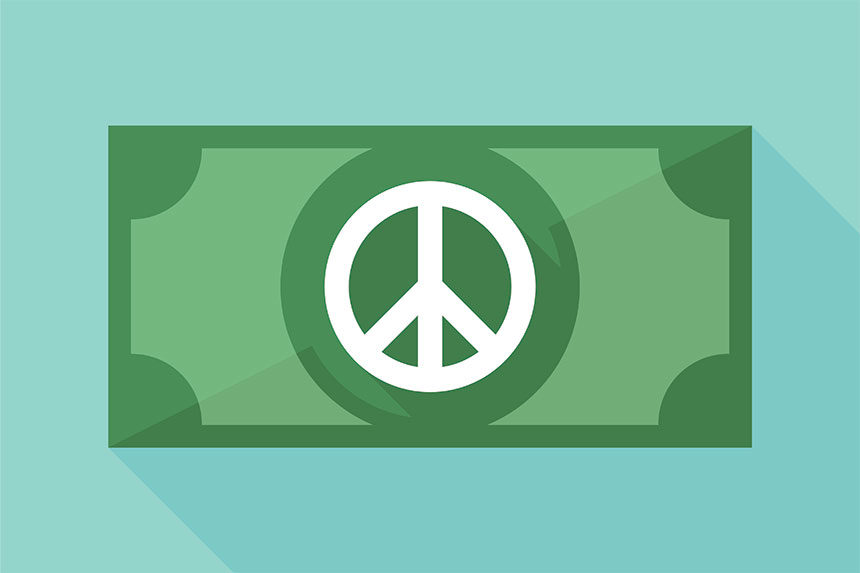Managing editor and logophile Andy Hollandbeck reveals the sometimes surprising roots of common English words and phrases. Remember: Etymology tells us where a word comes from, but not what it means today.
If you watch enough Judge Judy (and definitions of enough can vary), you know that paying someone off doesn’t always pacify them. This grab for more cash (or sometimes more than cash) can run afoul not only of contract law but of etymology, too. At its roots, the word pay had more to do with remuneration than with calming someone down.
From the Latin noun pax, meaning “peace,” came the verb pacare “to pacify,” which is what the word would have meant to the Romans. In Medieval Latin, pacare took on the added sense of “to pacify a creditor by paying a debt.” The word carried both senses as it found its place in other Romance languages — specifically, in this case, in Old French paier. That word meaning both “to pay a debtor” and “to appease” (another word rooted in pax) was adopted into Middle English as payen.
By the start of the 16th century, the “appease” sense of the word had more or less dropped off in favor of the “compensation” sense, and it was well on its way to becoming the Modern English pay. Try to keep this link from peace to payment in mind the next time you’re visited by the frustration of paying your bills, your creditors, or your taxes.
Featured image: Shutterstock
Become a Saturday Evening Post member and enjoy unlimited access. Subscribe now



